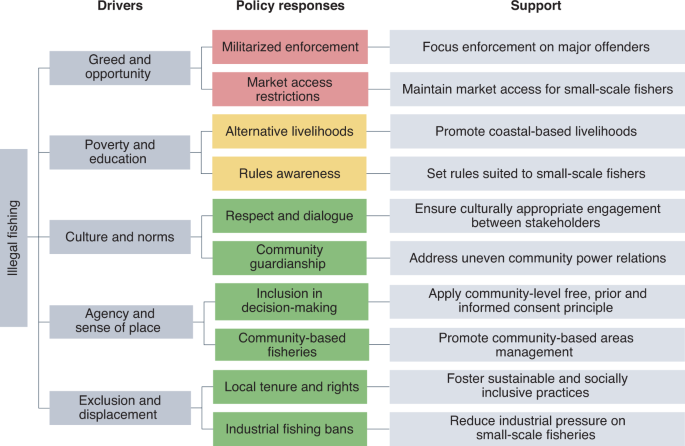Behavioural science can enhance ocean sustainability by providing insights into illegal fishing. Current enforcement criminalizes small-scale fishers and fails to address root causes, letting large-scale illegal fishing off the hook. Efforts to address illegal fishing would benefit from more holistic behavioural research.
The UN Decade of Ocean Science for Sustainable Development (2021–2030) seeks policy responses that are scientifically informed, to advance sustainability. This has focused on the natural sciences, which are vital but insufficient to address ocean sustainability alone. Behavioural science can provide insights into fostering pro-environmental behaviours in individuals, corporations and governments. Yet, adopting a narrow perspective (in this case, from behavioural economics and criminology) may decrease sustainability and marginalize vulnerable communities. We illustrate the need for interdisciplinary approaches that incorporate multiple perspectives to analyse the drivers of illegal fishing, and design inclusive, equitable and sustainable governance and regulatory frameworks.
https://www.nature.com/articles/s41562-021-01256-9
